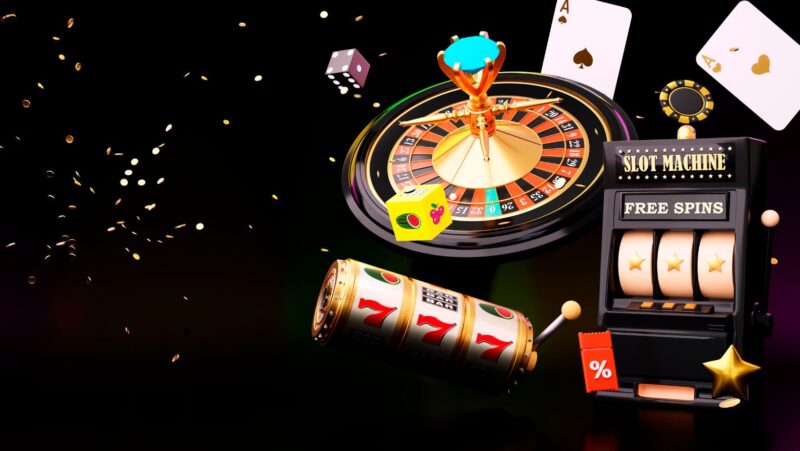
For decades, credit cards like Visa and Mastercard were the backbone of online casino deposits. Players loved their familiarity: you typed in a number, confirmed the amount, and within seconds your casino balance was topped up. Visa alone processes more than 150 million transactions a day, and its presence in online casinos gave players peace of mind that their money was moving through a trusted network.
The Rise of Traditional Payment Giants
E-wallets like PayPal, Skrill, and Neteller followed, offering even faster deposits and withdrawals. By 2023, PayPal had more than 430 million active accounts worldwide, many of which were used in iGaming. For players, e-wallets combine speed with an added layer of privacy. On the plus side, your bank never directly interacted with the casino, which felt safer.
But while these methods are still popular, a shift is underway. Increasingly, players are seeking alternatives that better match the fast-paced, borderless nature of digital gambling. That’s where crypto comes in. And as finest bitcoin gambling sites show, these platforms aren’t just providing another way to pay but enhancing the overall casino experience. They often boast instant deposits, transparent transactions, and provably fair systems that appeal to crypto-savvy audiences looking for more than just the usual card swipe.
Why Cards Still Hold Ground
Despite all the innovation, credit cards remain a cornerstone of the online casino industry. Visa and Mastercard are accepted in almost every jurisdiction that allows regulated gambling. Their advantages are clear: they’re universal, easy to use, and familiar to nearly every adult player.
However, there are downsides that have become more glaring in recent years. Processing fees can eat into winnings, withdrawals are slower, and banks sometimes block gambling transactions outright depending on local laws. In the UK, for instance, credit cards were banned entirely for online gambling in 2020 after regulators raised concerns about debt.
That said, debit cards remain widely accepted, and in markets like the U.S. or Canada, players still lean heavily on their bank-linked plastic. Cards are reliable but they no longer feel cutting-edge compared to the possibilities of crypto wallets and altcoin transfers.
The E-Wallet Revolution
When PayPal, Skrill, and Neteller entered the casino scene, they were hailed as game-changers. Suddenly, you could fund your account in seconds without entering your card details on every new site. Withdrawals, which used to take days via bank transfer, could now hit your e-wallet within hours.
In the year 2025, 79% of Italian bettors are reportedly using digital wallets, while Spanish adoption goes as high as 83%. France and Romania have slightly lower rates–they’re at 70% and 72%, respectively. As you can see, the interest is growing, more among younger people who like mobile-friendly and modern solutions.
Also, strong security features are equally important when making decisions about the means of payment. 36% of Romanian and 39% of Spanish players say security is the main reason for their preference for e-wallets.
The appeal is obvious: security, speed, and convenience. Plus, many e-wallets have robust dispute resolution processes, which players saw as an extra safety net.
Still, e-wallets are not without issues. PayPal has strict policies and isn’t available on all gambling sites. Skrill and Neteller often impose higher fees for gambling-related transactions. And while they’re fast, they still require interaction with the traditional banking system, meaning your privacy isn’t absolute.

Bitcoin and Altcoins
Cryptocurrency began as a niche payment method in the early 2010s, but it has since evolved into a dominant force in online casinos. Bitcoin, Ethereum, Litecoin, and stablecoins like USDT are now widely accepted, with many platforms even offering exclusive bonuses for crypto deposits.
The appeal is clear. First, there’s speed: deposits are instant, and withdrawals often process in minutes, which is an enormous improvement over card and bank transfers. Second, costs are lower. Crypto transfers cut out banks and middlemen, reducing transaction fees. Third, privacy matters. Players who don’t want their gambling activity tied directly to their bank statements see crypto as an ideal option.
A 2023 report by SOFTSWISS revealed that crypto gambling transactions made up 29.5% of all online bets placed on its platforms, a staggering figure considering crypto wasn’t even a mainstream option a decade ago. Bitcoin still leads the pack, but altcoins like Ethereum and Dogecoin are rising quickly, buoyed by meme culture and community-driven hype.
Regulation and Trust
Traditional payment methods benefit from decades of regulation. Visa, Mastercard, and PayPal are household names backed by consumer protections. With crypto, trust has historically been harder to establish. Stories of lost wallets, hacks, or rug pulls have spooked many casual players.
But the industry is evolving. Licensed casinos now integrate provably fair algorithms and partner with reputable blockchain payment processors. Stablecoins add another layer of security, giving players the benefits of crypto transactions without the headaches of volatility.
Countries like Malta and jurisdictions like Curacao are beginning to license crypto casinos specifically, giving them legitimacy that early platforms lacked. Trust, once a hurdle, is steadily becoming a strength.
The Global Picture
In Europe, e-wallets and cards remain popular, but crypto adoption is growing fastest among younger demographics. In Asia, where mobile-first payments dominate, altcoins are gaining traction alongside platforms like Alipay. Meanwhile, in Latin America, where inflation undermines trust in local currencies, stablecoins like USDT are emerging as preferred gambling tools.
The U.S. is more fragmented. Federal restrictions and state-level regulations mean players often face limits on which payment methods they can use. Still, the trend is undeniable: crypto is carving out space even in tightly regulated markets.
The Shift in Casino Culture
When players used cards, the focus was on accessibility. With e-wallets, it was fast and convenient. With crypto, the culture feels different: borderless, tech-savvy, and community-driven.
Some casinos now brand themselves as “crypto-first,” offering not only payments in Bitcoin but also games built on blockchain, NFT rewards, and tokenized loyalty systems. For a new generation of players raised on digital scarcity and internet memes, this ecosystem feels natural.
In contrast, traditional players still stick to Visa or PayPal, seeing crypto as unfamiliar or too risky. The split reflects not just preference but worldview: one side anchored in stability, the other chasing innovation.







